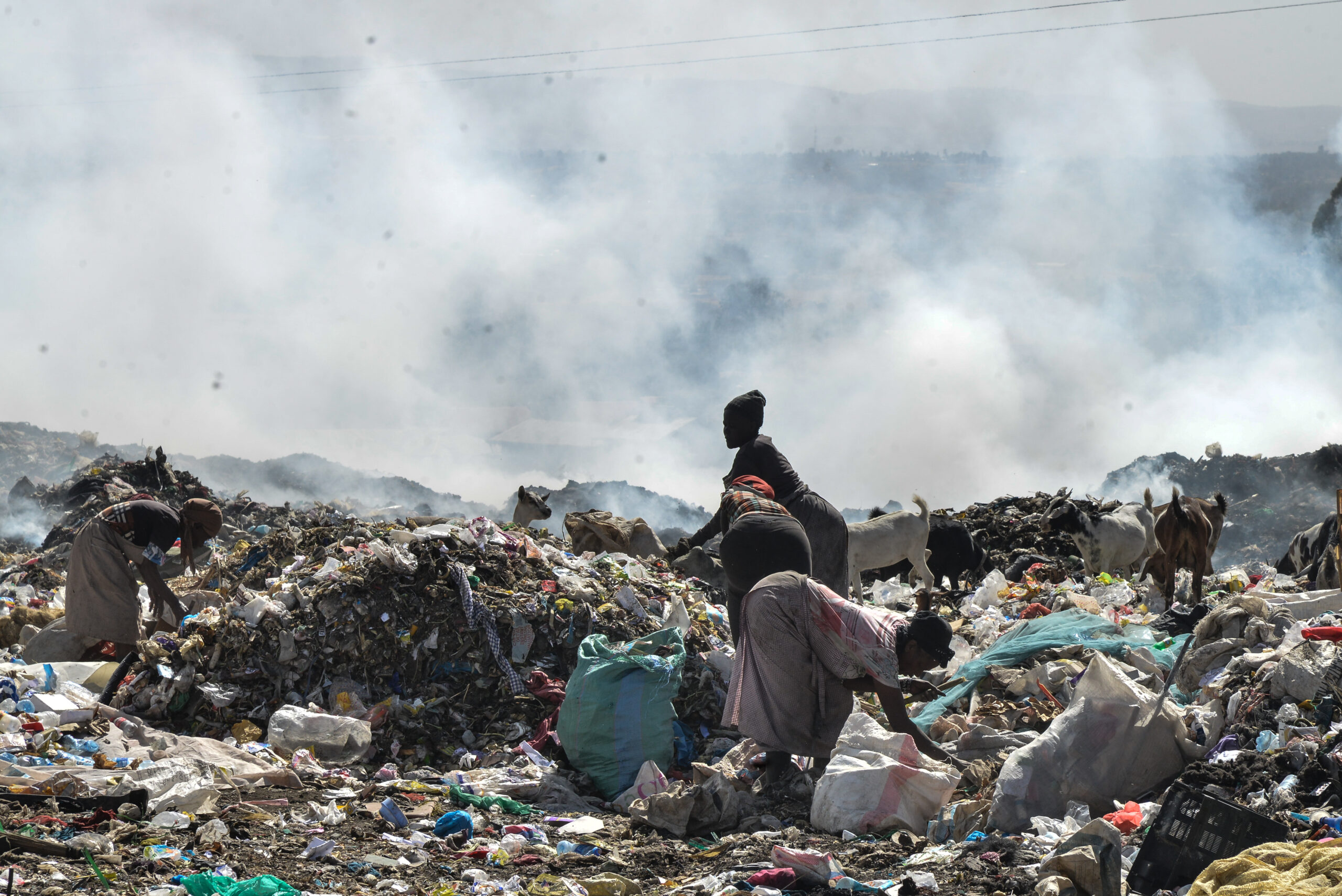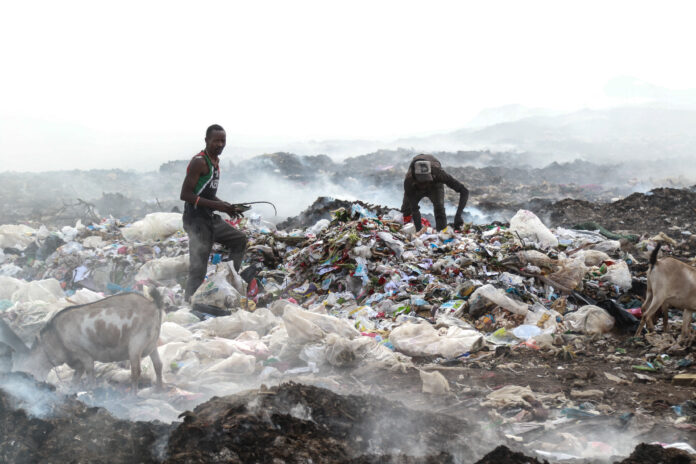By Jackson Okata
Kisumu County, Kenya: Residents who are highly vulnerable to the effects of Open burning of waste in Kenya Kisumu County are set to benefit from a $230 K grant.
The funds will be used to stop the open burning of solid waste, a global practice that has catastrophic effects on human health and the environment. It will improve waste management systems in Kisumu City.
Practical Action has been awarded the grant as part of a $1.3 million global Project led by Engineering X – an international collaboration founded by the Royal Academy of Engineering and Lloyd’s Register Foundation. The project will be implemented by a consortium of five organizations over a two-year period.
The projects will seek to reduce the open burning of solid waste, which is a major contributor to global air pollution and greenhouse gas emissions.

According to Lucy Stevens, Practical Action’s Head of Urban Services, Open burning of waste is a serious problem in itself, and a symptom of a failed waste management system.
“We have seen its impacts at local levels in our work with urban low-income communities. Finding lasting solutions requires action at multiple levels which is why this global collaboration is so important.
“Together with our partners, we will develop and test practical solutions, while also being part of regional and global consultations to improve guidance for countries and encourage more finance to flow to this neglected issue.
“We aim to bring about real, people-centered, changes at the city level and chart the way for future progress improving waste management, protecting health, and combatting climate change, she said.
The grant will also support projects that provide practical solutions and knowledge to local and national governments, helping them plan and take action to reduce open burning of waste and toxic emissions.
Additionally, the project will also focus on raising awareness and increase action on the impact of burning municipal solid waste which is particularly an acute problem in Africa
Practical Action says that lessons learned from city pilots and ongoing engagement with regional bodies will be used to fine-tune roadmaps for reducing open burning of waste and making them more feasible and sustainable at a regional level.
Open burning of waste has become a pervasive global practice with severe consequences. Over two billion people, particularly in low- and middle-income countries, endure the dire effects of polluted air, ground, and water caused by the burning of solid waste.
Kisumu City alone, where the project will be implemented generates up to 252 tons of solid waste daily. This is mainly disposed of by open dumping and burning on the streets and at dumpsites that pose environmental threats and health hazards.
The health implications are alarming, with respiratory infections, immune disorders, reproductive abnormalities, and premature death being direct outcomes of this environmental catastrophe.
Professor Sir Jim McDonald FREng FRSE, President of the Royal Academy of Engineering, noted that despite its catastrophic impact on people’s health and the environment, many people rely on open burning of waste for their livelihoods, and it is important that lasting change is achieved through local, community-focused approaches.
“By leading this new international consortium with the support of the Climate and Clean Air Coalition, I hope we can help those communities most affected to benefit from the economic and social opportunities afforded by more integrated and sustainable waste management systems.
“This project is a positive step towards tackling the scourge of open burning and we welcome other partners who could help us build on the results of this work in these regions. We also urge governments, funders, and international organizations to prioritise as a matter of urgency an integrated approach to phasing out open burning worldwide,” he said.
Practical Action has been working in the waste management sector for decades and intends to leverage its extensive expertise in a community-led approach to contribute to the project’s success. The funding will enable Practical Action and its partners to spearhead real change in waste management practices around the world.
Professor Desta Mebratu, Africa Project Lead for Engineering X said: “Open burning of waste is a key cause of poor air quality, which is responsible for 1.2 million deaths in Africa every year. If we can phase out this practice it will dramatically improve health outcomes for the local population and protect the most vulnerable, who are disproportionately affected by air pollution.
There is also a huge socioeconomic opportunity for the African waste sector if it can pivot to treat waste as a valuable commodity in a circulate economy that supports decent jobs and livelihoods.
“I am pleased to be leading the development of the Africa Regional Roadmap after a longstanding engagement with Engineering X on this issue. It is very timely following the 2022 AMCEN resolution and the launching of a multi-stakeholder partnership at COP27 to end the open burning of waste in Africa by 2040. We look forward to engaging with all actors and call for more to join this vital work to eliminate open burning.”
The open burning of the Climate and Clean Air Coalition (CCAC) and implemented by Practical Action. The other members of the consortium implementing the project are Engineering X, the Institute for Global Environmental Strategies (IGES), UN-Habitat, and the International Solid Waste Waste Project is financed by the UNEP’s Association (ISWA).














